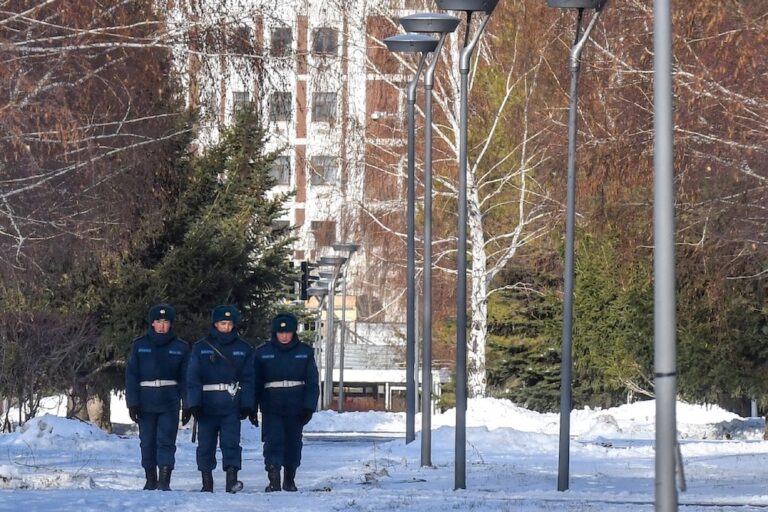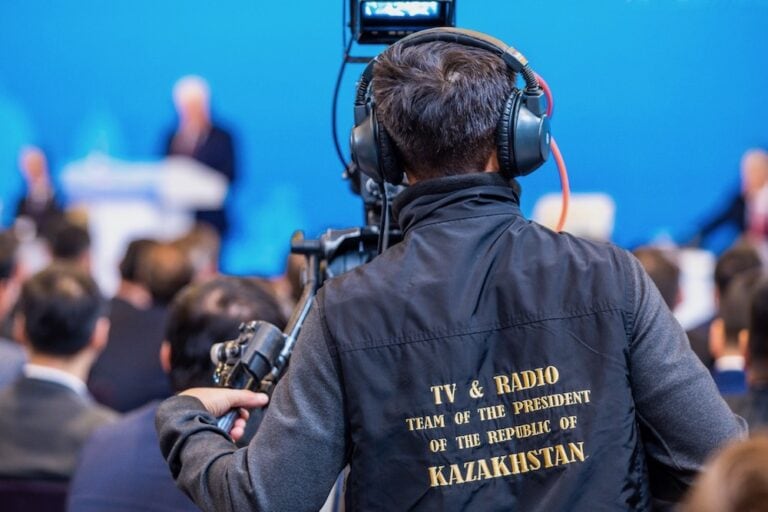(JuHI/IFEX) – JuHI was informed by Internews Kazakhstan of a number of recent incidents restricting the freedom of activity of independent, private mass media in Kazakhstan. According to information submitted to JuHI, on 4 March 2002, the government of Kazakhstan rendered a decision suspending all broadcasting rights for the television company “TAN” in the city […]
(JuHI/IFEX) – JuHI was informed by Internews Kazakhstan of a number of recent incidents restricting the freedom of activity of independent, private mass media in Kazakhstan.
According to information submitted to JuHI, on 4 March 2002, the government of Kazakhstan rendered a decision suspending all broadcasting rights for the television company “TAN” in the city of Almaty for six months. The license of the “TAN” television station has been suspended on the basis of various violations, such as a wrongly tuned transmitter, improper registration of the transmitter, violation of sanitary conditions, etc. The temporary closing order imposed on the station was signed by the head of a committee within the Ministry of Transport and Communications.
In February, the Kazakh government recalled broadcasting licenses for violations of the language law and the mass media law in such towns as Pavlodar, Stepnogorsk, Makinsk and Temirtau. Media outlets targeted were Irbis, STS, Alfa, Channel 43, Channel 29 and TKT.
In each case, authorities use various arguments and accuse broadcasters of violating Kazakh legislation. However, journalists and owners of closed stations, media experts and the country’s opposition figures claim in their speeches that in reality a campaign of political persecution has been launched in the country against the media, which to some extent report on democratic opposition in their information programmes. In addition, decisions of various bodies, including judicial bodies, are being officially used to justify the closure of stations.
Since the beginning of 2002, newspapers containing critical articles regarding the government have had to face great difficulty. Publishing houses under the control of the authorities refuse to print the “Respublika – delovoye obozreniye”, “Vremya po – The Globe” and “SolDat” newspapers.
Journalists from several television companies, which were closed by the government, have urged the public, parliament, the media and international organisations to protect them from pressure by the authorities.


